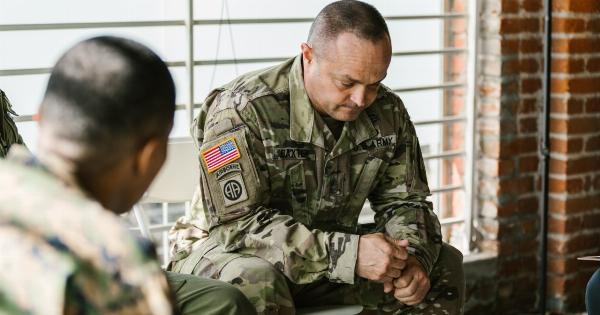The Middle East Respiratory Syndrome (MERS) is a viral respiratory illness that is caused by the MERS coronavirus (MERS-CoV).
It was first identified in Saudi Arabia in 2012 and has since spread to several other countries in the Middle East, Europe, Asia, and the United States. MERS can cause severe respiratory illness, with symptoms ranging from fever, cough, and shortness of breath to kidney failure and even death in some cases.
To protect yourself and prevent the transmission of the MERS virus, it is important to follow the recommended directions and take necessary precautions.
1. Practice Good Hygiene
One of the most effective ways to prevent the MERS virus is by practicing good hygiene. This includes frequent and thorough handwashing with soap and water for at least 20 seconds, especially after coughing, sneezing, or being in public places.
If soap and water are not available, use a hand sanitizer that contains at least 60% alcohol. Avoid touching your face, especially your eyes, nose, and mouth, as the virus can enter your body through these areas.
2. Cover Your Mouth and Nose
When coughing or sneezing, always cover your mouth and nose with a tissue or your elbow. This helps prevent the spread of respiratory droplets that may contain the MERS virus. Dispose of used tissues properly and wash your hands immediately afterwards.
3. Avoid Close Contact
Avoid close contact with individuals who are sick, especially those displaying symptoms of respiratory illness. Maintain a safe distance of at least 1 meter (3 feet) from anyone who is coughing, sneezing, or showing signs of illness.
This is particularly important in crowded places or if you are in close proximity to someone who has recently traveled to a MERS-affected region.
4. Wear a Face Mask
If you are in a MERS-affected area or are taking care of someone with respiratory symptoms, wearing a face mask can provide an additional layer of protection.
Ensure that the mask covers your nose and mouth completely and fits snugly against the sides of your face. Replace the mask if it becomes damp or visibly dirty, and dispose of it in a closed bin immediately after use.
5. Practice Respiratory Etiquette
In addition to covering your mouth and nose when coughing or sneezing, it is important to practice respiratory etiquette.
This means avoiding spitting in public, avoiding close conversations with others, and using disposable tissues or elbows to block coughs or sneezes. By following good respiratory etiquette, you can help prevent the spread of the MERS virus.
6. Stay Informed and Follow Travel Advisory
Stay informed about the latest updates and travel advisories issued by reputable health organizations and governments regarding MERS.
If you are planning to travel to a MERS-affected region, it is advisable to check for any travel restrictions or recommendations. Follow the guidelines provided by health authorities and take necessary precautions to protect yourself and others.
7. Avoid Contact with Camels
Camels have been identified as a primary source of MERS-CoV. It is important to avoid contact with camels, including touching, feeding, or consuming raw camel products such as milk and meat.
If you are in close proximity to camels, practice strict hygiene measures, such as washing your hands thoroughly with soap and water.
8. Maintain a Healthy Lifestyle
A strong immune system can help protect you from various infections, including the MERS virus. Maintain a healthy lifestyle by eating a balanced diet, getting enough sleep, and engaging in regular exercise.
Avoid smoking, excessive alcohol consumption, and stressful situations, as these can weaken your immune system and make you more susceptible to infections.
9. Seek Medical Attention
If you develop symptoms such as fever, cough, or difficulty breathing, seek medical attention immediately. Inform your healthcare provider about your symptoms and any recent travel history to MERS-affected regions.
Follow their guidance and avoid close contact with others until you have recovered completely.
10. Encourage Vaccination
Although there is currently no specific vaccine available for the MERS virus, it is important to stay up-to-date with routine vaccinations, such as the flu vaccine.
Vaccinations can help protect you from other respiratory illnesses that may weaken your immune system and make you more vulnerable to the MERS virus.
Conclusion
Prevention is key when it comes to protecting yourself and others from the MERS virus. By following these directions and taking necessary precautions, you can reduce the risk of contracting and spreading the virus.
Stay informed, practice good hygiene, and seek medical attention if needed. Together, we can prevent the spread of MERS and ensure the well-being of our communities.






























